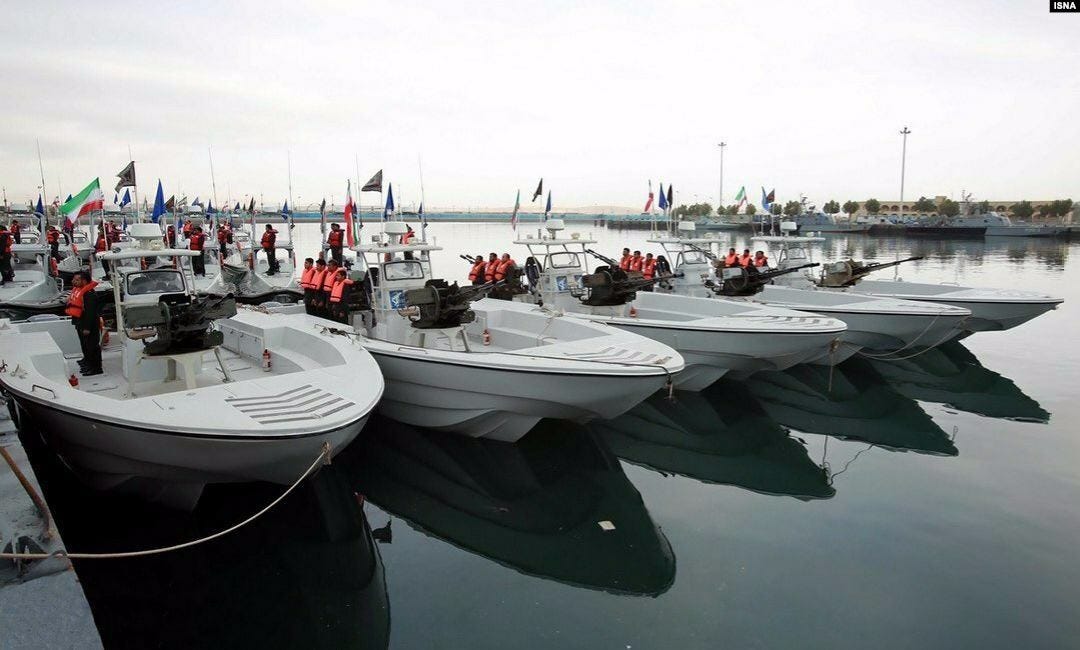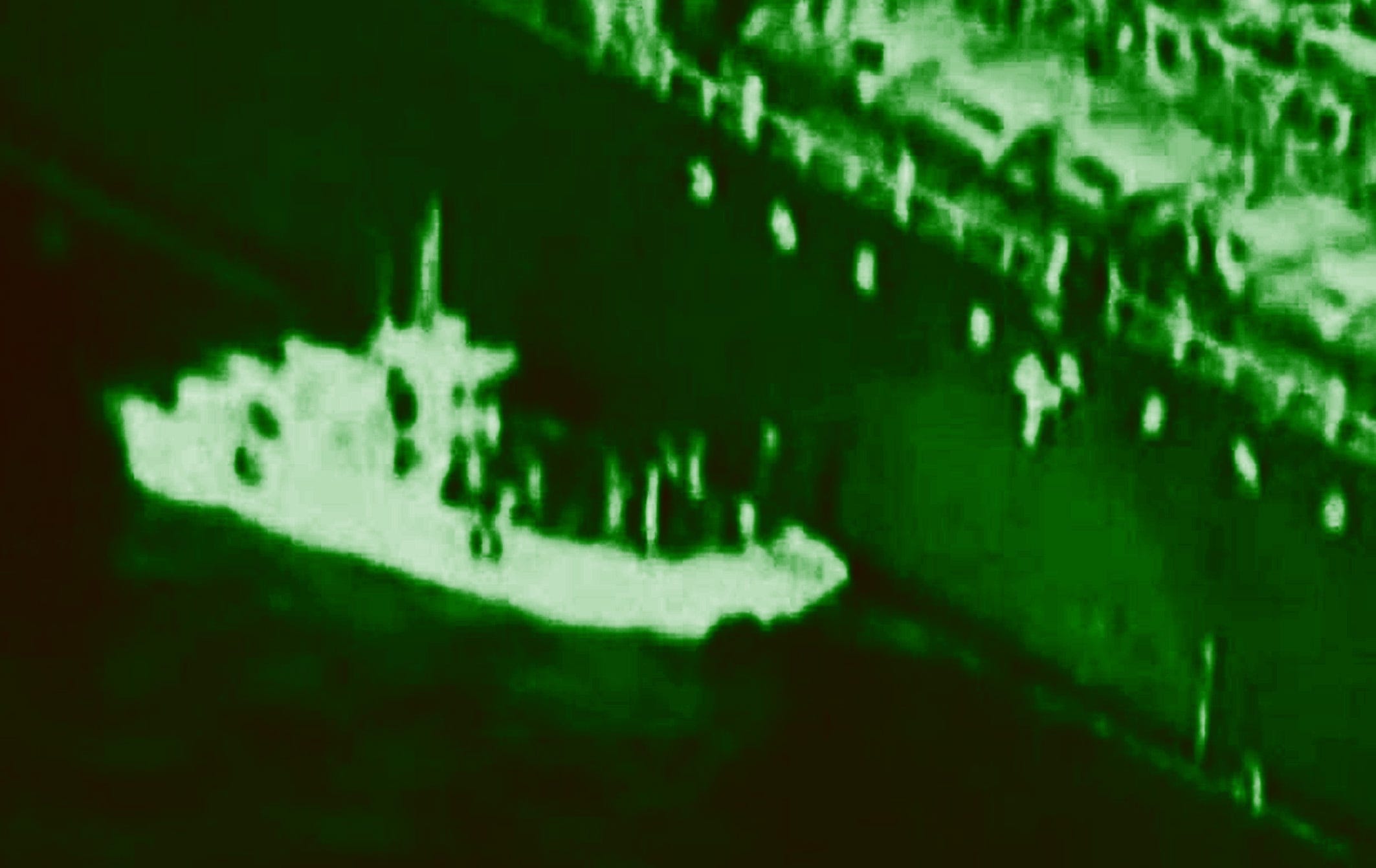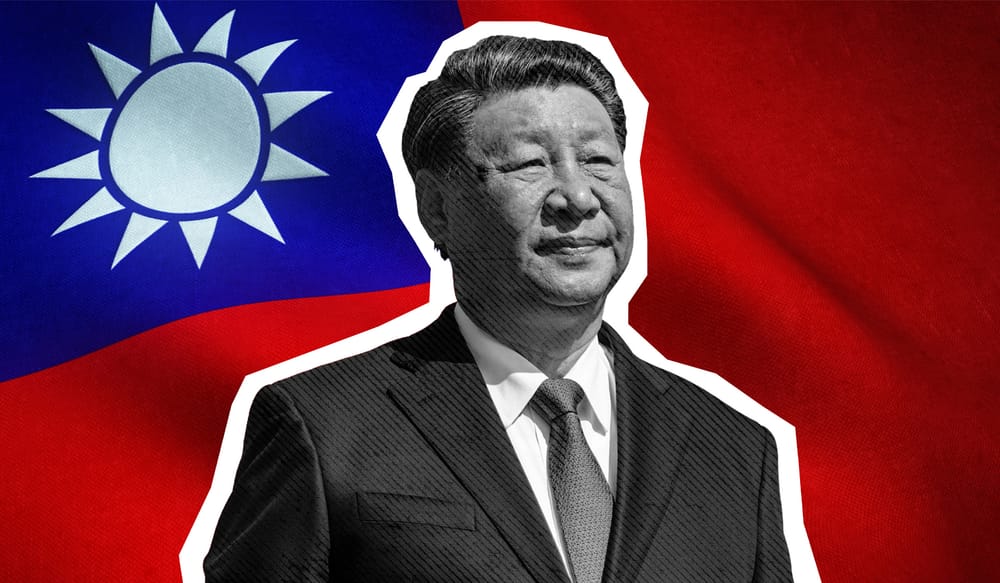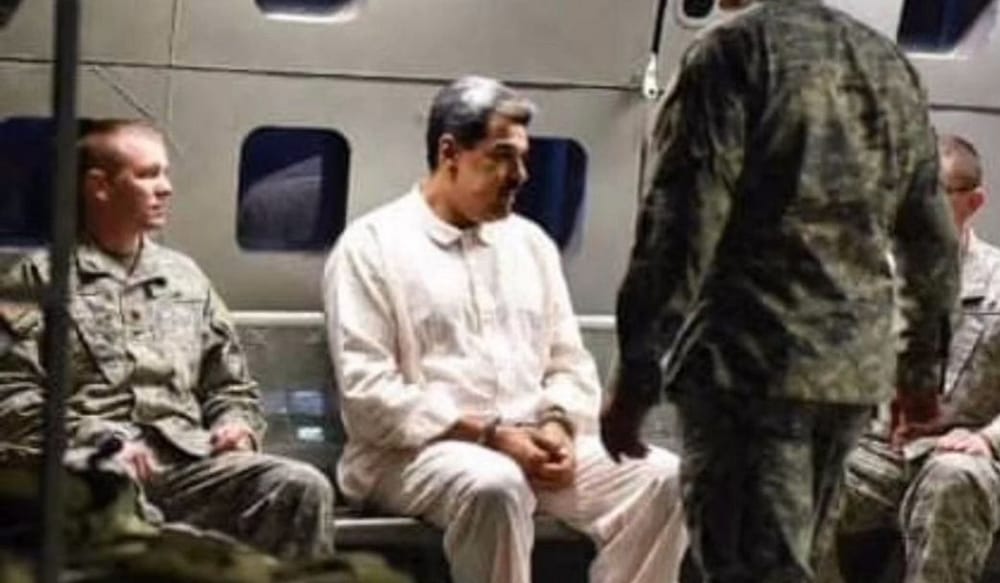Six tankers as well as Saudi oil facilities were damaged in a spate of attacks in May and June. While the US and its allies are claiming Iran was responsible, the world's only theocracy categorically denies all allegations - suggesting (what garners some support among certain commentators) that these attacks were just false flags, in an attempt to escalate tensions or even start a war. Let's examine those claims.
Nobody wants war – but war is not without benefits
Probably the most preposterous accusation I've heard is that by starting the war Donald Trump is trying to increase his chances for a reelection next year.

The US president campaigned on American disengagement and has done a great deal to curb military presence abroad. In a rather rare case of bipartisan understanding, there's almost nobody in the US politics who would advocate a violent escalation with Iran – neither on the left nor on the right (with exception of John Bolton, maybe).
Engaging in an open war with Iran would likely sink Trump's campaign, not the other way around - especially as the Democrats would wave Obama's JCPOA agreement as a sign Iran could be reasoned with (even if this suggestion is baseless, it would still work as a political weapon) but reckless billionaire ruined the chances for world peace.
That is, unless Trump's administration is able lay a significant blow on the Iranian military, without protracted involvement.
US has already done such a thing in the past, sinking about a half of Iranian fleet in 1988 as a response to Iran's mining of the Persian Gulf which nearly sunk an American frigate. Operation "Praying Mantis" lasted merely a day but was very precise and effective, and, in addition, contributed to the conclusion of the 8 year long Iran-Iraq war.
Americans will not invade Iran but may hurt it so much that its naval capabilities will be crippled for years.
Such a swift and relatively inexpensive operation, with limited or no loss of American life, would certainly boost Trump's standing at home, while having the added benefit of sending a signal to other adversaries - like Russia, China or North Korea - that the US is not a paper tiger and will readily deploy its military abroad.
By now it may appear that while the US may find some gain from a carefully planned military confrontation, Iran surely would not risk it - especially after Americans have boosted their presence in the region. But it's not so simple.
Iran has a very long history of conducting similar low-level harassment, which does not result in major casualties or natural disasters but disrupts regional trade - specifically oil exports. This practice has been going on, with various intensity, for over 30 years, sending a message to other Middle Eastern countries and their buyers, that Gulf oil supplies are under persistent threat.
At the same time, the idea of challenging a major superpower as it is flexing its muscles isn't exactly new - or irrational.
A similar thing occurred in Syria, where the regime in Damascus - likely advised by its Russian allies - defied Obama's red line on the first anniversary of his speech, with a chemical attack in Ghouta in August 2013.
US president was forced to make a decision - and he backed down, what left the door open for the Russians to sweep in, supposedly remove chemical weapons and take on a greater role in shaping the outcome of the war, knowing that Americans have chosen to remain on the sidelines.
The stance of the Assad regime was similarly defiant - accusing opposition and the "white helmets" of staging the attack to implicate it in a breach of international laws to prompt a foreign intervention. Of course no despot is ever going to admit he's cynically using violence to save himself.
In a paradoxical way, then, it is very convenient for Iran to attack when the American threat is the most serious, as the opportunity to dismiss each incident as a false flag is best - helping it stoke anti-US sentiments internationally, portraying Washington as unstable and warmongering.
Tehran is testing the limits of American resolve, betting (likely correctly) that USA will not seek a large scale reprisal, which would threaten the regime itself. At the same time, by cornering Trump it may help to undermine his position as either appearing too weak (loud mouth, no action) or crazy and overzealous (destructive madman who preached disengagement and is now dropping bombs).
If executed correctly, this plan may help Democrats defeat him next year, what could open the door to a revival of JCPOA and removal of sanctions.
Both rivals operate within a narrow margin of error. If Tehran oversteps and damage is done not only to its navy but also parts of merchant fleet as well as harbor facilities, its ability to influence regional politics by shipping money and weapons across the region (e.g. to Houthis in Yemen or Hamas in Israel via Red Sea) would be severely damaged.
On the opposite side, if Trump fails to take meaningful action or pushes the US into a major military conflict, he could bury his chances for reelection. But if he's successful in hurting Iran badly without serious losses, he could win both support at home and respect abroad, helping him both win the next year's race, as well as push American interests abroad during the next term.
What's the evidence?
So far all I've written above is merely another opinion on the matter. That said, there's a good deal of both circumstantial and direct evidence of Iranian involvement in recent attacks.
Starting with where they happened. All attacks were carried out within the Gulf of Oman, on the other side of Strait of Hormuz, away from Persian Gulf, along Iranian coast.
The latest two blasts occurred within 50km (or about 27 nautical miles) from the newest Iranian naval base in Jask.
Opened little over 10 years ago, in October 2008, the purpose of the base is precisely to enable a blockade of the Strait of Hormuz, or - at the very least - impede traffic passing through it.
"We are creating a new defence front in the region, thinking of a non-regional enemy," Adm Sayyari told state run Iranian radio upon opening of the base.
"In this region we are capable of preventing the entry of any kind of enemy into the strategic Persian Gulf if need be," he said.
Operating in these waters, Iran is taking action far away from regional rivals, with only UAE in the nearest vicinity (and it still lacks serious naval capabilities), with a lower risk of facing a counter-attack and better chances of covering up its involvement.
Interestingly, the news about the blasts near the port of Fujairah on May 12, was first broadcasted by... Al Mayadeen, a Lebanese TV station financed by Iran.
The station erroneously claimed that seven ships had been on fire, within the port. In the end the attack struck four vessels, outside of the port's boundaries but within UAE's territorial waters. It may suggest that the original plan had been different but execution failed to deal all the damage intended.
And Iranian missteps do not end there.
On June 14, US military Central Command released a drone footage which recorded an Iranian Gashti-class boat detaching an unexploded limpet mine from one of the attacked tankers.
The most plausible explanation is that the mine turned out to be a dud and the attackers did not want to leave hard evidence attached to the ship. Unaware they were being filmed, they returned and removed the mine - what was caught by American surveillance drone.
Thanks to this recording we know how attacks were carried out and what vessels were involved - what, again, undermines any theories about American-devised false-flag attack.
Here are the Gashti-class boats, proudly presented by Iran in 2016 (all content below provided by Radio Farda - notably, a US funded media outlet, based in Prague, with a goal to counter Iranian propaganda in Farsi):

Here are the elements of the boats, highlighted for easier identification:

And below are the screenshots from the CENTCOM footage, pointing to similar chevron pattern on the bow, bridge cage design as well as the shape of the hull:

Of course I don't expect to convince conspiracy theorists - they will always find an excuse and, after all, it would not be outside of the realm of possibility for the mighty American military to copy an Iranian boat and load some actors on it, right?
That said, puttting these crazy theories aside, all the evidence points to Iran as the culprit - and, as I've explained, its actions aren't exactly as irrational as it may seem.
Iran is provocative, because it knows that one year ahead of the US elections, any significant stumble for Trump could put a Democrat in the White House, what could promise an end to sanctions.
In the meanwhile, US president likely needs to show some real determination to its Middle Eastern allies, who committed to significant purchases of American weaponry - but expect Washington to tangibly support them. At the same time, heightened emergency allows the White House to bypass Congress for arms-sales approval and sell billions of dollars worth of weapons directly - giving Trump successes to boast about domestically.
Both sides have a very limited margin of error. Iranians bet on a lack of reaction - or a retaliation that would be easy for them to weather. Any attempt to topple the regime is highly unlikely.
Trump, on the other hand, may possess the means to quite literally wipe Iranian leadership off the map but the political costs of a protracted military campaign would sink his chances in next year's election and go against his promises of international disengagement.
So far, it looks like some military action is increasingly likely - especially as Iran is quite bold in poking the tiger it thinks is made of paper. And while it doesn't seem likely that the US would be willing to do properly serious damage to the ayatollahs, Donald Trump is not exactly known for predictable behavior.
He might not be willing to risk a broad escalation today but if Tehran is not careful, it may trigger American president to come after it with a lot less restraint, if he secures the win next year.
The tensions mounting today may only be yet another burst of sparks in the world's least stable region. But there is also a chance - however small - they are a harbinger of historic change in the years to come.
A change nobody in Tehran expects today.









